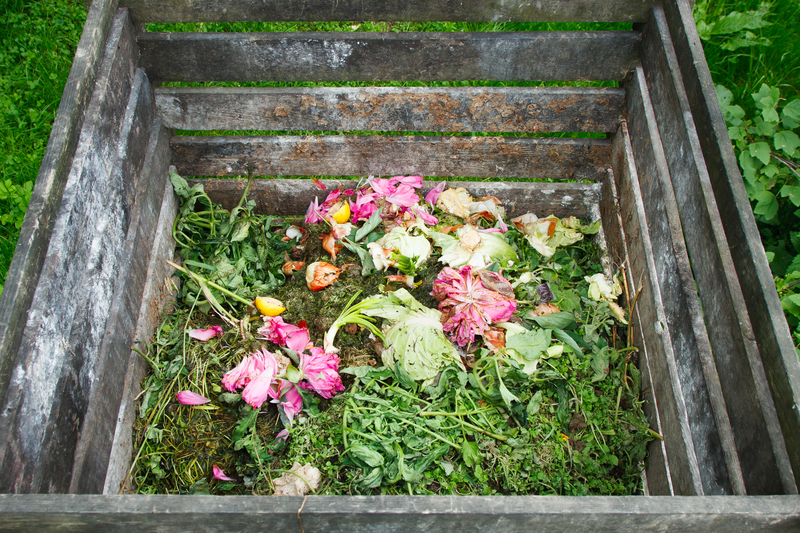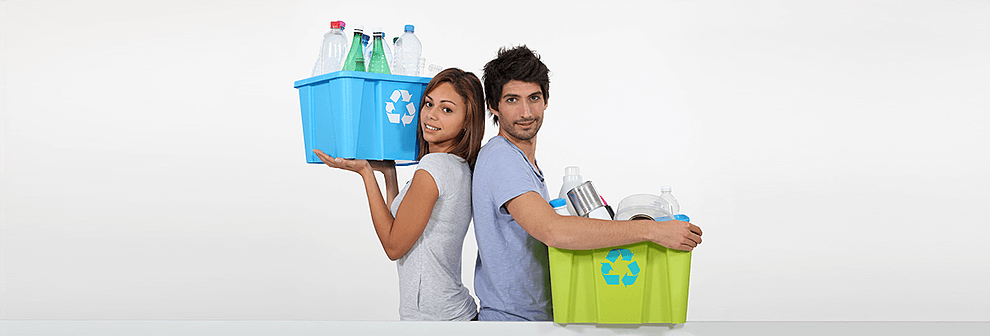Effortless Household Recycling Ideas
Posted on 19/10/2025
Recycling at home can significantly reduce the amount of waste that ends up in landfills, conserve natural resources, and save energy. However, many people find the process of recycling cumbersome and complicated. In reality, with a few simple strategies and a bit of organization, recycling can be an effortless task that seamlessly integrates into your daily routine. This article will guide you through practical and effective household recycling ideas that you can start implementing today.
1. Understand What Can Be Recycled
The first step to effortless recycling is knowing what materials can be recycled. While this may seem straightforward, it often varies depending on your local recycling facility's capabilities. Generally, the following items are widely accepted in most areas:
- Paper: Newspapers, magazines, office paper, cardboard.
- Plastics: Bottles, containers, and packaging marked with recycling symbols #1 and #2.
- Glass: Bottles and jars.
- Metals: Aluminum cans, tin cans, and steel containers.
Items such as plastic bags, Styrofoam, certain electronics, and batteries may require special recycling procedures. It's beneficial to familiarize yourself with your local municipality's recycling guidelines to ensure you're recycling correctly.

2. Set Up a Convenient Recycling Station
Creating a dedicated space for sorting recyclables can make the process much more efficient. Your recycling station doesn't have to be elaborate--it can be as simple as a few labeled bins in an accessible area such as the kitchen, laundry room, or garage. Ideally, label each bin with clear and specific instructions regarding what goes where. This eliminates confusion and ensures all household members are recycling correctly.
3. Flatten Cardboard Boxes
Cardboard boxes take up a lot of space, making your recycling bins fill up quickly. To maximize space, flatten any cardboard boxes before placing them in the recycling bin. This small step can make a big difference in maintaining an organized and efficient recycling station.
4. Keep It Clean
Contaminated recyclables can ruin an entire batch of recycling. Always rinse out food and drink containers before placing them in the recycle bin. This helps prevent bad odors, pests, and contamination of other recyclables. For example, empty and rinse out bottles, cans, and jars to avoid leftover food residue.
5. Recycle Electronics and Batteries Responsibly
Electronic waste (e-waste) and batteries contain hazardous materials that can harm the environment if not disposed of properly. Many communities offer e-waste recycling programs, dedicated collection events, or specific drop-off locations for these items. Always research your local options to ensure responsible disposal.
6. Compost Organic Waste
Composting organic waste such as food scraps and yard waste is a great way to reduce the amount of waste your household produces. Creating a compost bin in your backyard or using a countertop compost container for kitchen scraps can turn waste into nutrient-rich soil for your garden. Items suitable for composting include fruit and vegetable scraps, coffee grounds, eggshells, and yard trimmings.
7. Get Creative with Upcycling
Upcycling is the process of repurposing old or unused items into something new and useful. This not only reduces waste but also inspires creativity and resourcefulness. Some easy upcycling ideas include:
- Turning glass jars into storage containers or vases.
- Using old t-shirts to create reusable shopping bags.
- Transforming wine corks into coasters or bulletin boards.
- Repurposing wooden pallets into furniture or garden planters.
Upcycling can be a fun and rewarding way to extend the life of your household items while reducing your environmental footprint.
8. Educate and Involve the Whole Family
Recycling should be a collective effort within the household. Educate family members about the importance of recycling and how to do it correctly. Make it a fun and engaging activity, especially for children. Creating a family recycling chart or setting small recycling goals can encourage everyone to participate actively.
9. Opt for Reusable Over Disposable
One of the best ways to reduce waste is to choose reusable items instead of disposable ones. Consider investing in reusable water bottles, shopping bags, coffee cups, and food storage containers. By incorporating reusable items into your daily routine, you minimize the need for single-use products, thereby reducing the amount of waste produced.

10. Monitor and Adjust Your Efforts
Like any new habit, it's important to monitor your recycling efforts and make adjustments as needed. Regularly check to ensure that your recycling station is organized and that all recyclables are being sorted correctly. If you notice any issues, take steps to address them promptly. Continuously educate yourself on new recycling guidelines and innovations to keep your efforts up-to-date and effective.
Conclusion
Effortless household recycling is attainable with a few thoughtful strategies and a bit of organization. By understanding what can be recycled, setting up an efficient recycling station, and educating your family, you can make recycling a seamless part of your daily routine.
Additionally, embracing practices such as composting, upcycling, and opting for reusable items will further enhance your recycling efforts. Remember, every little bit helps, and by integrating these ideas into your household, you contribute to a more sustainable and eco-friendly future.
Latest Posts
UK's Environmental Issues: Waste Dumping
Effortless Household Recycling Ideas






